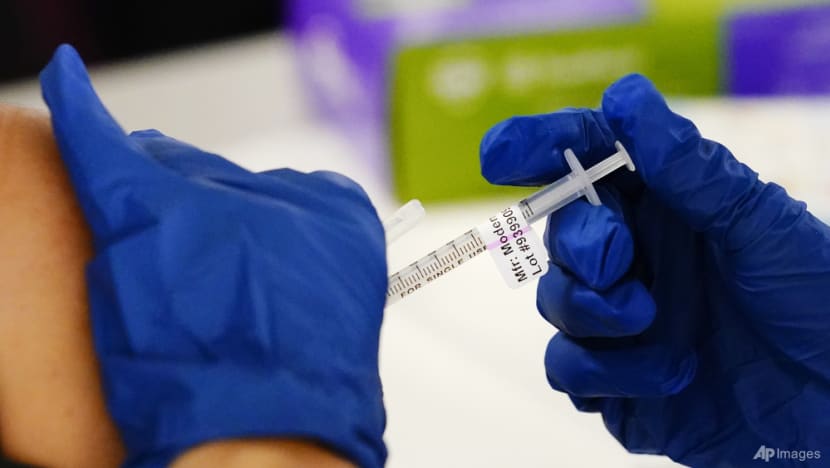About 52,000 employees in Singapore remain unvaccinated against COVID-19: MOM

SINGAPORE: Around 52,000 employees in Singapore remain unvaccinated, the Ministry of Manpower (MOM) said on Monday (Dec 27) after authorities announced that unvaccinated workers will not be allowed to return to workplaces from Jan 15.
Of these, about 6,700 are 60 years old and above and they are at high risk of severe illness or death from COVID-19 infection, said MOM.
"Only a small proportion of these employees are medically ineligible for vaccination," the ministry said in its latest advisory on COVID-19 vaccination at the workplace.
It added that as of Dec 19, 80 per cent of firms have attained 100 per cent vaccine coverage for their workers, and 98 per cent of the total workforce have been vaccinated. These figures do not include people who are self-employed.
From Jan 15 next year, only employees who are fully vaccinated, certified to be medically ineligible or have recovered from COVID-19 within 180 days, can return to the workplace.
Unvaccinated or partially vaccinated employees will not be allowed to return even with a negative COVID-19 test result.
Partially vaccinated employees can still enter their workplaces with a negative test result up to Jan 31, after which they must be fully vaccinated.
"We have seen the emergence of the more transmissible Omicron variant, which with the Delta variant, significantly raises the chance of contracting COVID-19 compared to a year ago.
"Unvaccinated employees, especially those who are older, will put immense strain on our healthcare capacity in the coming months, if they contract COVID-19," said MOM.
Vaccination also will be a condition for the approval or grant of new long-term passes, work passes, as well as permanent residence from Feb 1 next year.
In an update on Wednesday, MOM clarified that the measures will apply to both employees and those who are self-employed.
EMPLOYERS CAN TERMINATE WORKER "AS LAST RESORT"
MOM said that employers should redeploy unvaccinated workers to jobs which can be done from home, with suitable remuneration.
They can also place them on no-pay leave "based on mutually agreeable terms".
As a "last resort" after exploring these options, companies can fire these workers with notice, "in accordance with the employment contract", said MOM.
"If termination of employment is due to employees’ inability to be at the workplace to perform their contracted work, such termination of employment would not be considered as wrongful dismissal," said the Manpower Ministry.
For employees who are certified to be medically ineligible for vaccines under the National Vaccination Programme, they can return to workplaces but employers should consider allowing them to work from home, if they are able to do so, MOM advised.
They can also be redeployed to suitable jobs which can be done from home. MOM said that pregnant employees are also strongly encouraged to be vaccinated.
"Employers should not terminate the employment of medically eligible but unvaccinated pregnant employees and are strongly encouraged to give special consideration to their needs and concerns," said MOM.
They can consider letting them work from home or giving them no-pay leave until after the employee has delivered. This should not affect their right to maternity benefits.
BOOKMARK THIS: Our comprehensive coverage of the COVID-19 pandemic and its developments
Download our app or subscribe to our Telegram channel for the latest updates on the coronavirus pandemic: https://cna.asia/telegram



















